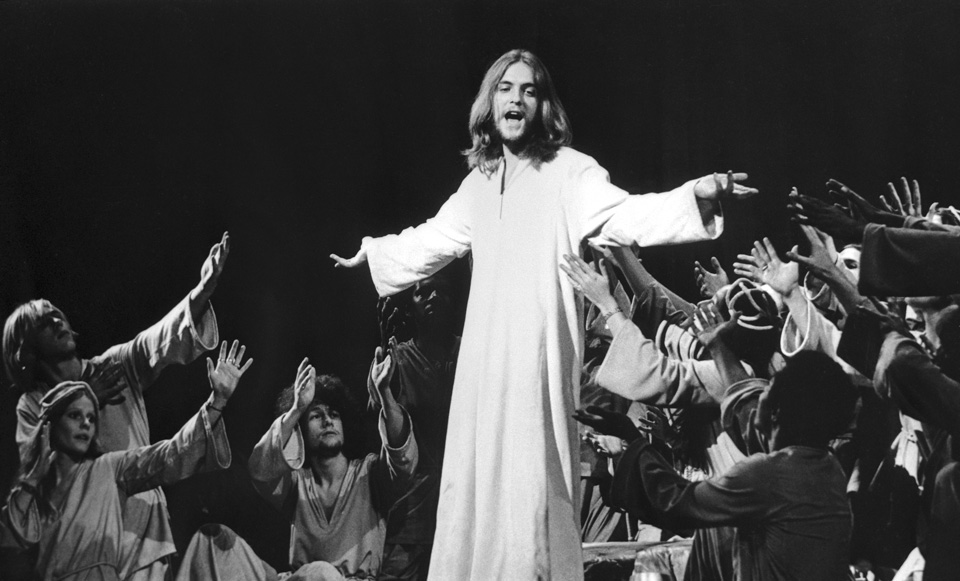
This summer’s production of Jesus Christ Superstar at the Hollywood Bowl piqued new interest in a rock opera that’s been piquing interest – and controversy – for over 50 years. This time, part of the appeal originated from a cast of superstars: Cynthia Erivo (Wicked) as Jesus, Adam Lambert (American Idol) as Judas, Phillipa Soo (Hamilton) as Mary Magdalene, and Josh Gad (Frozen) as King Herod (replaced one evening by John Stamos as Gad recovered from COVID).
The latest production of the musical inspired fans to revisit the music from earlier productions. Billboard reported on Aug. 6 that four different Jesus Christ Superstar soundtracks – the original 1970 cast, the 1973 film, the 1996 London cast, and the 2018 live recording on NBC – experienced a combined 283% jump in official on-demand U.S. streams during the Hollywood run dates compared to the previous weekend.
Church historian, professor, and pastor Charlie Self , Ph.D., credits the latest hype to Andrew Lloyd Webber’s enduring music score, captivating choreography, and a star-studded Hollywood cast, but also sees deeper cultural reasons for it.

Superstar first burst onto the scene in 1970, near the midpoint of a decade of social upheaval that began with the assassination of President John F. Kennedy in 1963 and closed with the resignation of Richard Nixon in 1974. In the midst of that turbulent era, which included a split within evangelical Christianity that widened in subsequent years, this reinterpretation of Christ’s passion does something similar to other religious dramas of the era like Godspell and Brother Sun, Sister Moon. “It’s an attempt to unite something ancient with current sensibilities,” Self said. But Superstar does that in an edgier, more innovative manner.
The musical stirs generational nostalgia among Boomers, Self said, while also striking a chord with members of Gen Z and Gen Alpha who desire something more significant than algorithm-selected content from TikTok influencers.
“In every generation we see this quest for something more than the current trend,” Self said. “Of course we see the opposite as well – we see the problem of recentism, which is, ‘Whatever is new must be better.’” With its content and cast, this revival manages to address those twin impulses, Self said.
And like the era from which Superstar emerged, the current era is turbulent. “People are looking for ways to heal some of the polarization or look for ways to get outside the debate and find something greater,” said Self, who acknowledges Webber’s musical genius, but finds the view of Jesus disappointing and recognizes that artistic decision is the source of some of the negative reaction.
Still, he sees hopeful signs: It represents a longing for community and love, and it draws on over two millennia of revealed tradition in Judaism and Christianity.
“I respect the phenomenon,” Self said. “It’s an opportunity for us to have a conversation and try to build a bridge toward what I think is a more stable faith and view. The arts can do that in a way that other things cannot.”




























